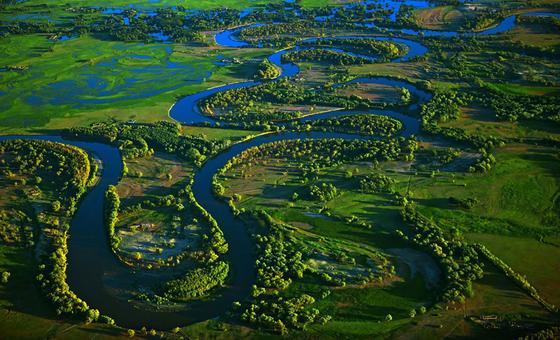The United Nations Environment Programme (UNEP), has on the occasion of World Wetlands Day, described Wetlands as the unsung heroes of the climate crisis.
UNEP said that although Wetlands cover only around 6 per cent of the Earth’s land surface, 40 per cent of all plant and animal species live or breed in them.
Wetlands are important for human wellbeing and security as more than a billion people across the world depend on them for their livelihoods, about one in eight people on Earth.
“A broad definition of wetlands includes ecosystems such as lakes and rivers, underground aquifers, swamps, coral reefs, and many others; but also, human-made artificial sites such as fish ponds or reservoirs” a statement by the UNEP revealed.
Read also: Turkey moves to cut emissions
While noting that healthy wetlands “punch above their weight in terms of benefits, Principal Coordinator for Marine and Freshwater at UNEP, Leticia Carvalho said that the theme for the very first World Day is “Wetlands Action for People and Nature”.
The UNEP further explained that Wetlands store more carbon than any other ecosystem, with peatlands alone storing twice as much as all the world’s forests.
“And inland wetland ecosystems absorb excess water and help prevent floods and drought, something critical to help communities adapt to a changing climate,” the UN body said
It, however, said that there was an urgent call to act and to invest financial, human and political capital, to save the world’s wetlands from disappearing altogether – and to restore those areas already lost.
“Wetlands are disappearing three times faster than forests and are Earth’s most threatened ecosystem,” UNEP said “In just 50 years – since 1970 – 35 per cent of the world’s wetlands have evaporated”.
It maintained that human activities that have fuelled this include agriculture, construction, pollution, overfishing and overexploitation of resources; together with invasive species upsetting the balance, and climate change.
Story was adapted from UN News.
